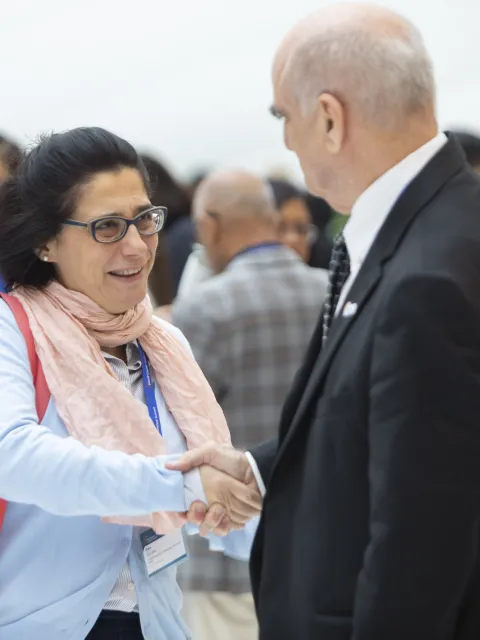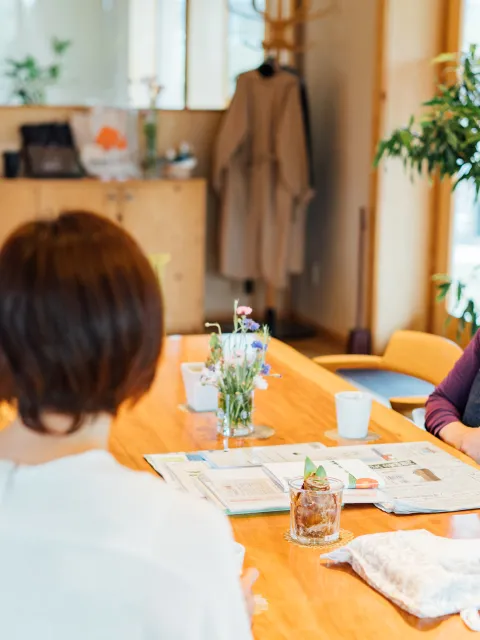Coronavirus in LMICs: effective advocacy in the face of adversity
UICC Member organisations play an important role in national advocacy to address the additional challenges posed by the coronavirus for cancer treatment, support, funding and control in their countries.

UICC’s Cancer Advocates programme supports Member organisations in low- and middle-income countries (LMICs) to strengthen their advocacy work nationally. Over the years, these organisations have built effective networks, coalitions and relations with the media and government agencies. These have proven invaluable in the current context of the coronavirus pandemic, allowing cancer control organisations to react rapidly to the situation in order to address the new challenges it poses, and attempt to safeguard the cancer community and respond to its needs.
LMICs face the prospect of the same, if not more extreme, shortages in protective equipment and medicines that other high income countries are currently experiencing, as well as questions with regard to continuing treatment, delaying diagnoses and screening, and preserving the health of cancer patients and caregivers (see “Coronavirus and Cancer Care: Planning, informing, assisting and giving hope”). They are doing so in contexts where health systems may be less robust, funding may be more difficult to secure, social distancing cannot necessarily be so easily be practiced, and travelling to a clinic or hospital may have proved difficult even before the pandemic.
Availability of essential medicines and personal protective equipment (PPE)
Mansour Niang, Secretary-General of the Ligue sénégalaise contre le cancer at the 2019 World Cancer Leaders' Summit
In Senegal, Mansour Niang, Secretary-General of the Ligue sénégalaise contre le cancer (Senegalese League Against Cancer) says that “For the past three years, we have been advocating the State to cover cancer under the national health care system (couverture maladie universelle, CMU), and we don’t want to lose the ground we have won,” he said. “This is particularly important now, as problems with late diagnoses and difficulties for patients in paying for treatment are systemic and are now exacerbated in the current crisis.”
The Senegalese League Against Cancer has been successful in ensuring that the government provide 15 essential medicines for cancer so that patients can access them for free from the Pharmacie nationale d’approvisionnement (PNA). As the government now requisitions all essential protective equipment arriving in the country, the PNA assures that it has enough supplies to face a surge in coronavirus numbers.
In Mexico, however, the situation is more complex. “The governors of each state are expected to buy the necessary protective equipment with regard to coronavirus, but there are shortages,” said Isabelle Aloi-Timeus, President and Founder, and Adela Ayensa, Director General of Salvati A.C. Benefitting from media support, and working with the national cancer coalition, Juntos Contra el Cáncer, which they helped to found, they have highlighted this lack of equipment to the government and the general public.
Isabelle and Adela are also concerned about the situation of essential medicines. This has been a focus of their advocacy efforts in recent years and they were expecting the imminent publication of protocols for 10 types of cancer medicines, together with a compendium. “Now we don’t know when they are going to be published. We haven’t been given any estimated date and we fear that we will have to exert renewed pressure for their immediate publication to secure budgets and respond to shortages.”
In the Philippines, Carmen Auste, CEO of Cancer Warriors Foundation (CWF), a national Country Champion for the UICC’s Cancer Advocates programme, and Vice President of Cancer Coalition Philippines, participated in a multi-sectoral Technical Working Group on Medicines, Supplies and Devices Security. The Working Group issued policy guidelines for use of e-prescriptions so that patients would not need to consult in person to renew their maintenance medication. Price ceilings were also set for essential medicines, medical supplies and assistance was provided for unhampered transport.
In terms of PPE, Cancer Warriors Foundation became aware that staff at oncology units were not considered as priority frontline health workers. Believing that the best way to protect cancer patients was to protect care givers, Cancer Warriors connected oncology units with a set of donors, eventually ensuring separate delivery to oncology units. Engagement of donors was also instrumental providing free transportation, accommodations and food support to health care workers.
Guidelines for cancer patients
These Member organisations have also been instrumental issuing guidelines for cancer patients and their families, often coordinating with government authorities to draft official statements. They have also often called on their governments to enact measures preserving the health and continued care of cancer patients.
This is the case, for instance, for the Uganda Cancer Society as well as in Senegal where the Ligue sénégalaise worked with the Ministry of Health on limiting patients’ movements (and therefore exposure to the coronavirus) only to essential treatments. Juntos Contra el Cáncer in Mexico also pressed the government to issue hospital reconversion guidelines to ensure continued care for cancer patients, and these were published a week after their initial request was made early April.
In Kenya, the Kenyan Network of Cancer Organizations (KENCO) collaborated with the Ministry of Health on two statements on what people living with cancer and health should know about the coronavirus and considerations for health care providers handling cancer patients. KENCO also publicly opposed the government placing alcohol and tobacco on the list of essential products in the midst of the pandemic.
Enabling cancer patients to access treatment
A primary concern for cancer communities in LMICs is ensuring that cancer patients who need to continue their treatment may actually be able to do so – and in conditions that optimally preserve their suppressed immune systems. This means enabling them to travel.
On left, Shelley Burich, CEO of Samoa Cancer Society and, on right, Carmen Auste, Vice President of the Cancer Coalition Philippines
In the Philippines, as in other places, there is no more public transportation – and private drivers often need special permissions. The national Cancer Coalition is therefore also active to ensure that patients access health facilities. "To assist and support patients, Cancer Coalition set up a transportation service programme, matching patients’ treatment schedules with available drivers from a pool of volunteers. This was not limited to cancer patients but also made available to patients undergoing dialysis. We need to share resources and help all patients who have life threatening conditions," Carmen Auste said.
Juntos Contra el Cáncer has liaised between government authorities and patient groups to provide information on which hospitals they can go to, and what the guidelines are for each of them for accessing treatment.
For its part, the Uganda Cancer Society has expressed a number of concerns in a video calling on the authorities to implement an integrated response to cancer in light of the coronavirus. In addition to ensuring patients can access treatment is a significant concern that patients who have been discharged cannot return home due to the lockdown and subsequent travel restrictions.
Executive Director Paul Ebusu said, “They are forced to remain within the confines of the Uganda Cancer Institute where they received care, in crowded conditions that are not safe for their health. This combines with a food crisis due to the closure of canteens and markets.”
Longer terms concerns of funding
These organisations are doing admirable work, however they are all threatened by the prospect of reduced funding opportunities for the ongoing sustainability of their efforts. In some places, this is already compromising organisations’ abilities to function effectively. For instance, some organisations rely heavily on fundraising events, which can no longer take place in a context of social confinement.
“This year we were supposed to hold the Head Shave, our signature event, which alone can bring in up to ST$150,000 [US$ 55,000], and sometimes over, and now this has been deferred to 2021. This has obviously affected our planned cash flow for 2020,” said Shelley Burich, CEO of Samoa Cancer Society. Many other funding opportunities are on hold until further notice.
The unique situation created by the coronavirus has served as an important reminder of the valuable commitment, contribution and creativity of the cancer community in working to meet the needs of cancer patients, their families and clinical staff around the world. Facing a crisis of this magnitude, these organisations have demonstrated they are ready and prepared to act, engaging national level stakeholders to ensure that cancer patients remain as a priority on the national agenda.
Last update
Thursday 06 May 2021
